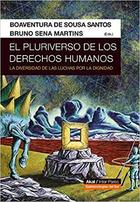
This book brings together a set of texts and authors that, in different ways, affect the possibilities of human rights as emancipatory grammars of human dignity. The proposed reflection is based on the idea that conventional conceptions of human rights need to be reinvented so that they are placed at the service of transformation and recognition agendas. It is a validation of human languages and forms not contemplated by the "narrow universalism" of hegemonic or conventional human rights, which, from our point of view, they are because they derive from a Western monocultural origin, because they have been service of the double criteria and of the imperialist justifications in the geopolitical field, and for being constituted today as minimum denominators of law, although congruent with the global individualist, neoliberal and north-centric order.
Confronting this heavy legacy...read more







